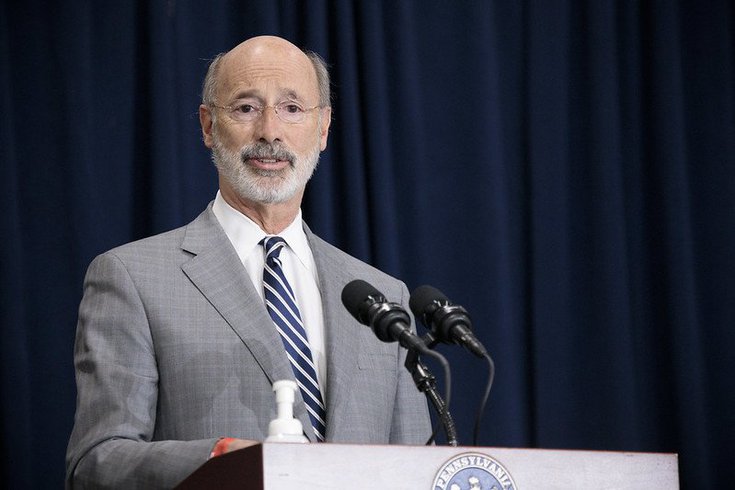
October 22, 2021
 Governor Tom Wolf/Flickr
Governor Tom Wolf/Flickr
Gov. Tom Wolf signed an executive order Thursday that he says will make workplaces safer, guarantee paid leave and increase wages. Wolf says the post-pandemic labor crisis isn't necessarily just a shortage of workers, but more specifically not enough workers willing to perform the same jobs under the same working conditions and wages that existed prior to the pandemic.
As Pennsylvania and the rest of the country collectively mourn the losses of the COVID-19 pandemic, and begin to rebuild and find the oft-referred "new normal," a labor crisis has developed in the wake.
It's the product of a shortage of workers, an abundance of open positions and workers leaving the workforce to search for higher-quality employment, and this labor crisis has has impacted nearly every industry in the United States. A record 4.3 million people quit their jobs in August 2021, according to the recent Job Opening and Labor Turnover Summary by the U.S. Bureau of Labor Statistics.
As part of a plan to address the labor shortage, Pennsylvania Gov. Tom Wolf signed an executive order Thursday that his administration believes will make workplaces safer, guarantee paid leave and increase wages.
"Whereas, various industries are experiencing new challenges in recruiting and retaining workers as a result of the COVID-19 pandemic; and … workers are reassessing and redefining what constitutes a quality job and how they are seeking to engage in work," the text of the order reads.
According to Wolf, this suggests the lack of workers and the abundance of available open positions are interrelated. The problem isn't necessarily a shortage of workers, but more specifically not enough workers willing to perform the same jobs under the same working conditions and wages that existed prior to the pandemic.
In a series of tweets, the governor unveiled his plan to "meet the needs of workers," adding the importance of a bipartisan effort in the largely Republican General Assembly to protect employees and make it easier for people to safely get back to work.
It’s time we stop asking why there is a labor shortage and start asking how we can make jobs better.
— Governor Tom Wolf (@GovernorTomWolf) October 21, 2021
Today, I'm unveiling my new workforce agenda to meet the needs of workers.
With our economy on a comeback, this is a critical moment for PA workers.
Here's my proposal ⬇️ pic.twitter.com/V6PE0js41H
The executive order gives the state's Department of Labor & Industry and the Office of Administration the authority to stukdy the feasibility of implementing OSHA standards in state government offices. Wolf wants the state legislature extend those OSHA protections to all public employees, Thursday's press statement says.
The order also directs the Department of Community and Economic Development to verify that businesses provide paid sick leave and is paying their employees at least the equivalent of the minimum wage for Pennsylvania state employees in order to receive assistance.
The current minimum wage for state employees and contractors is $13.50 and it increases to $15 in July 2024.
Wolf also is asking the state legislature to pass two bills — S.B. 13 and H.B. 1035 — to guarantee paid sick leave for Pennsylvania workers.
The order creates a public list of businesses and employers that have violate labor laws, owe back taxes, or fail to carry worker's compensation insurance.
"This is a critical moment for Pennsylvania workers, and it's time we stop asking why there is a labor shortage and start asking how we can make jobs better," Wolf said in Thursday's statement. “With Pennsylvanians renowned for our work ethic, this is an opportunity to improve jobs in the state, which will attract and retain hardworking people to live here and bring new industries to the commonwealth that want a talented, skilled and dedicated workforce."